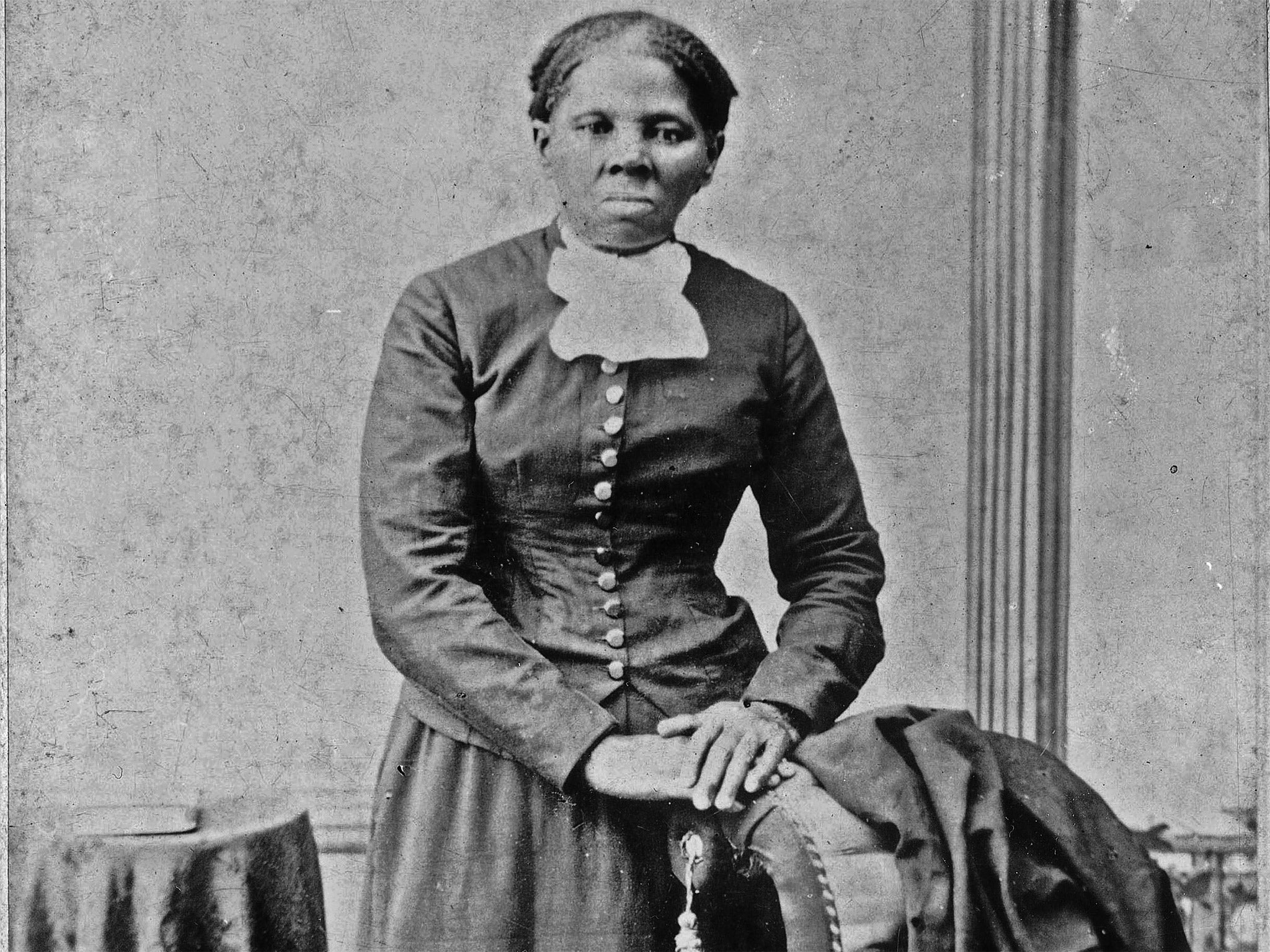Harriet Tubman: Why does this white, male congressman want her off the $20 bill?
The Department of Treasury announced in April that the abolitionist would replace Andrew Jackson, the 7th US president

Your support helps us to tell the story
From reproductive rights to climate change to Big Tech, The Independent is on the ground when the story is developing. Whether it's investigating the financials of Elon Musk's pro-Trump PAC or producing our latest documentary, 'The A Word', which shines a light on the American women fighting for reproductive rights, we know how important it is to parse out the facts from the messaging.
At such a critical moment in US history, we need reporters on the ground. Your donation allows us to keep sending journalists to speak to both sides of the story.
The Independent is trusted by Americans across the entire political spectrum. And unlike many other quality news outlets, we choose not to lock Americans out of our reporting and analysis with paywalls. We believe quality journalism should be available to everyone, paid for by those who can afford it.
Your support makes all the difference.US Rep Steve King says his amendment to block Harriet Tubman from appearing on the new 20 dollar bill is not racist; instead the Iowa congressman blames “liberal activism” for causing further division amongst Americans.
“It's not about Harriet Tubman, it's about keeping the picture on the $20,” Mr King said pointing to a portrait of Andrew Jackson, the seventh president of the US, on Tuesday. “Y’know? Why would you want to change that? I am a conservative, I like to keep what we have.”
The Department of Treasury announced its plan to change the image on the $20 bill in April. The Republican lawmaker filed his amendment on 17 June that would bar agency from changing any images that already appears on both coin and paper currency, effectively preventing the department from carrying out their plan to replace Jackson with Tubman - a former slave, abolitionist, and women’s suffrage activist - in coming years.
The House Rules Committee, however, denied floor consideration of Mr King’s proposal, preventing a vote that could have thwarted the Treasury’s plans to change the note.
“Here's what's really happening, this is liberal activism on the part of the president, that's trying to identify people by categories and he's divided us on the lines of groups,” Mr King said. “This is a divisive proposal on the part of the president and mine's unifying. It says just don't change anything.”
Andrew Jackson is a rather controversial figure in US history. A slave-owning Tennessee plantation owner, Jackson signed the Indian Removal Act during his tenure as president in 1830. The law forced relocation of Native American tribes to unsettled land west of the Mississippi River.
As a result of the law, thousands of Cherokees were forcibly moved from their territory by the US government between 1838 and 1839. More than 4,000 died in what became known as the “Trail of Tears”.
Historical memory of Tubman, many feel, demands the honour of appearing on the banknote - a gesture only granted to white, male figures of US history. Tubman was born into enslavement in 1822. She escaped in 1849. After finding freedom, Tubman returned as a Union spy and helped many other enslaved people escape through the Underground Railroad during the Civil War. After the war, Tubman became active in the movement for women's suffrage.
Once Tubman becomes the face of the $20 note, however, Jackson’s face is still expected to adorn the back of the bill.
The former Democratic opponent of Mr King’s, Kim Weaver, told the Des Moines Register that the seven-term congressman’s amendment does nothing to serve their district’s constituents.
“Iowans have four representatives in the United States House of Representatives, and unfortunately one of them seems to maintain a laser focus on where his next headline-grabbing piece of stunt legislation will come from,” Ms Weaver said.
Mr King is perhaps best known for his stance against undocumented immigration into the US - particularly as it related to the DREAM Act, the legislation that granted conditional residency brought to the US by their parents as minors.
Not one to mince words about the subject, the congressman said that for every undocumented minor “who’s a valedictorian, there’s another 100 out there who weigh 130 pounds and they’ve got calves the size of cantaloupes because they’re hauling 75 pounds of marijuana across the desert.”
But Ms Weaver sees Mr King as a public servant who does little to address the issues that their constituents face.
“Tuition costs are rising and graduating students are suffocating under oppressive student loan debt. Seniors are struggling to make ends meet and retire in dignity. Wages for working class Iowans continue to stagnate,” she added. “And Steve King is waging a one-man war against putting the first African-American woman on US currency."
Join our commenting forum
Join thought-provoking conversations, follow other Independent readers and see their replies
Comments